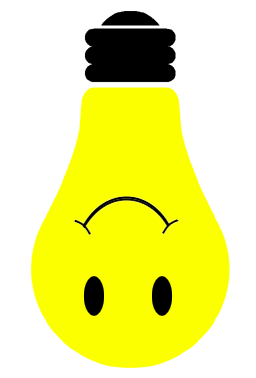
By now you’ve probably heard about author Naomi Wolf’s fateful radio interview on the BBC. Perhaps you’ve heard the interview itself, though if not, you might want to skip it—especially if you’re a writer who traffics in facts and has ever had to cite one. It’s gruesome listening.
Wolf was publicizing her book about the English government’s attitude toward homosexuality in the nineteenth century, Outrages: Sex, Censorship and the Criminalisation of Love. The persecution, she said, included “several dozen” executions for the crime of engaging in homosexual acts.
“I don’t think you’re right about this,” presenter Matthew Sweet said. At the time, he explained, the term “death recorded” would have referred not to an actual death but to a judge’s decision to decline to pronounce a death sentence.
The silence that followed, you might imagine, was the sound of an author seeing her career flash before her eyes. (Her U.S. publisher has announced a delay in the Stateside publication, originally scheduled for this month.)
I haven’t been hearing a lot of the kind of Schadenfreude that usually attends an author’s fall from grace, presumably because of the nature of the error. Wolf hadn’t committed a conscious subterfuge, such as plagiarism. She hadn’t bent statistics to her own advantage, a charge she has, in fact, repeatedly faced throughout her career.
Instead, she’d made an understandable mistake, one that any author might make.
I nearly made it myself, once.
I had been researching the history of the telescope for my book Seeing and Believing: How the Telescope Opened Our Eyes and Minds to the Heavens. I kept coming across references to Galileo having “invented” the telescope in 1609. But I figured that if I’m going to write a proper history of the telescope, I should include details of Galileo’s process of invention. So I continued my research, looking at more academic sources, and I found that telescopes had been circulating as a kind of novelty item in 1608, the year before Galileo’s supposed act of invention. I dug further, until I came across an explanation for the seeming discrepancy: In Galileo’s time, the word “inventor” referred to a person who refined an existing piece of technology, as Galileo had in numerous ways. The term for the person we today would call the inventor was “first inventor.”
The sources I’d initially consulted—the ones citing Galileo as the “inventor”—had probably been echoing one another in a series of misinterpretations dating back to some researcher seeing the word “invention” or “inventor” in a primary-source document and unthinkingly assigning a modern interpretation to it. I easily might have joined them in perpetuating the error if my book weren’t an actual history of the telescope that demanded further research.
But I learned my lesson: Don’t trust your own assumptions about a historical moment. It is, I think, a lesson for writers that applies beyond historical research: Try to see the world through the eyes of your characters—whether a scientist in the seventeenth century, a judge in the nineteenth century, or a fictional creation of your own imagination. Every character inhabits a unique world, which, even if you’re the one inventing it, might surprise you.
errr – it was Matthew Sweet – eminent English historian who gently corrected Wolf. ‘Death recorded’ has always meant the same – that the sentence was recorded but not passed down or carried out. Wolf got it wrong, plain and simple.
Thank you. I’ll correct the name.
First: https://www.independent.co.uk/voices/naomi-wolf-outrages-gay-rights-book-error-a8979646.html
Now, as most people following this debate have been blindly led to believe in the assertions of a pop radio host, I took the time to do a lot of research about his claims and I read both her book and his.
In my opinion, Matthew Sweet was worried as his book is completely undermined by Naomi Wolf’s. If you follow his interviews, it’s clear he is a 19c UK apologist. He also cited the wrong website three times on the interview, cherry picked from a tabloid from those times (which had the wrong date of the trial and wrong age of the man he used as an example), and cited a definition of death recorded that was just written in 2017. Sweet hardly qualifies as an eminent historian, I believe his doctorate is on fiction works in the 19c, and Sweet has continued to show both his insecurity in his statements as he has continued to attack Wolf on twitter and rally his fans to do so to this day. Wolf, on the other hand, owned her the errors that she could not argue (as she’d been ambushed in the most ungentle and aggressive way) but still (and still) remained and remains the only one in this debate with any dignity or class throughout it all. Sweet used to be a Dr Who critic prior to his role on the ironically named (and obviously misguidedly titled) show “Free Thinking”